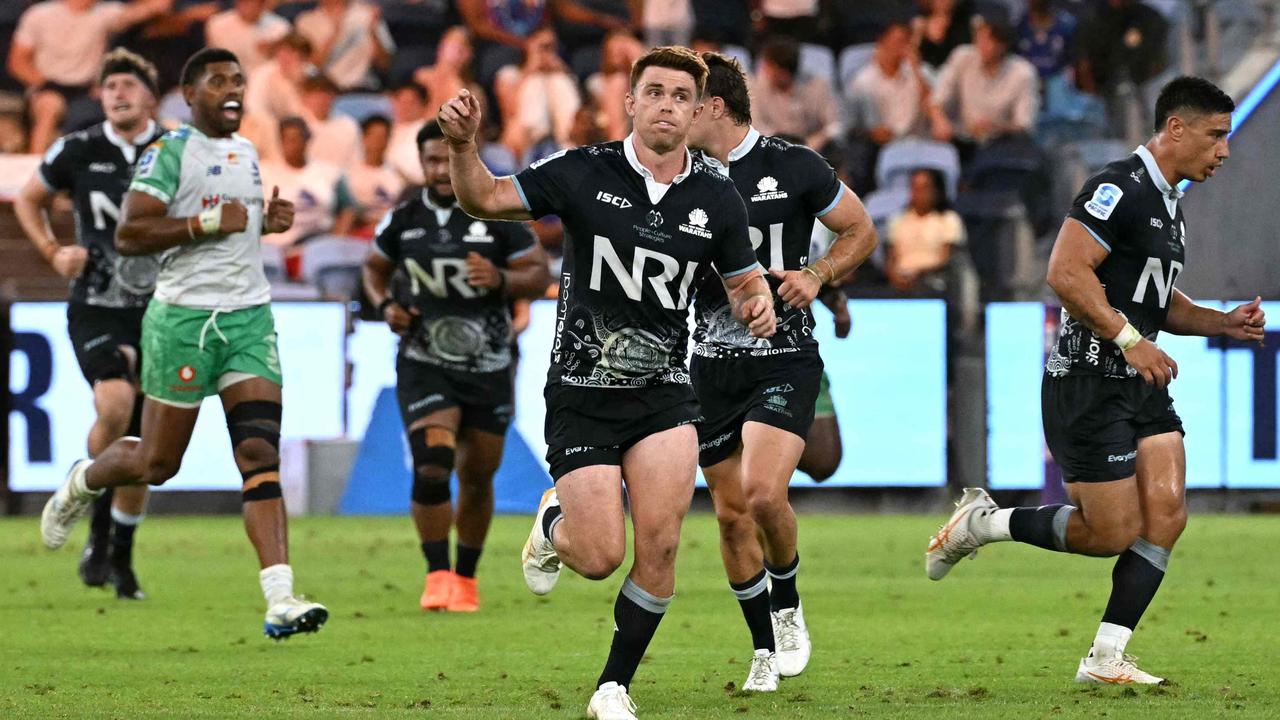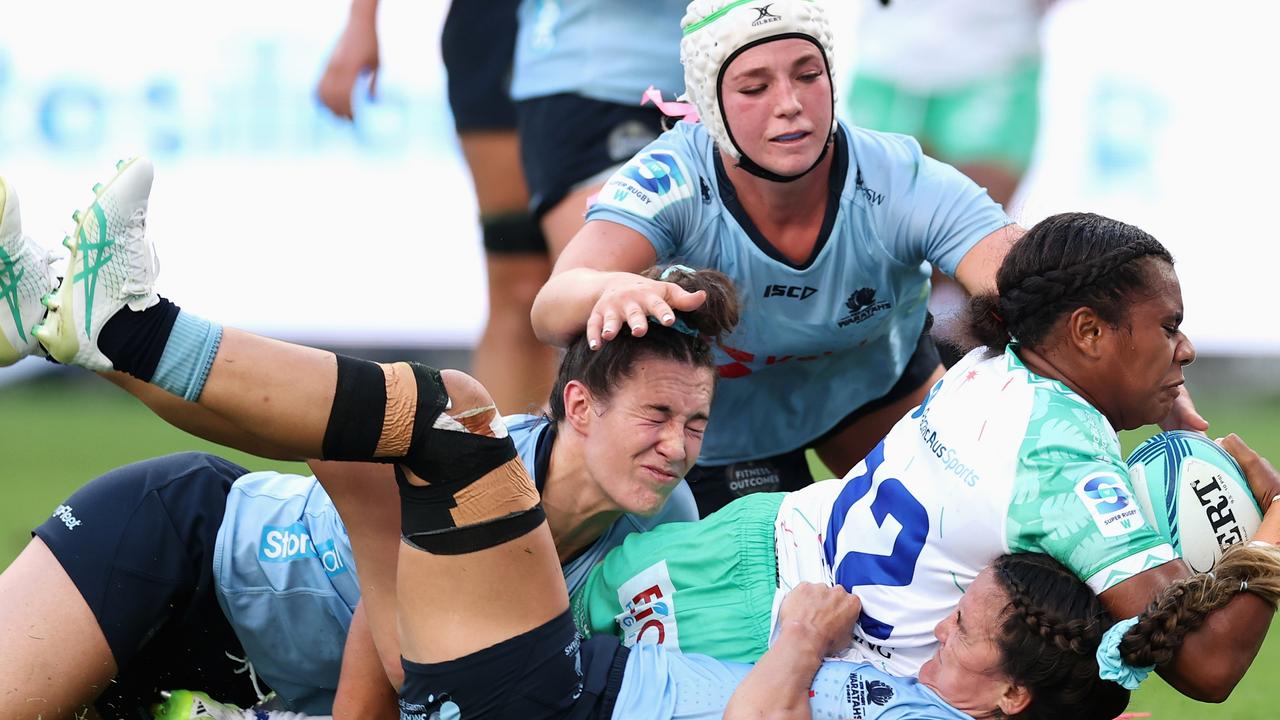Former Wallaby Brett Robinson elected to World Rugby’s top job
Even in his moment of triumph, the first Australian appointed to the most powerful job in World Rugby, Brett Robinson could not resist the temptation of making a playful joke at England’s expense as he outlined his vision for the future of the global game.
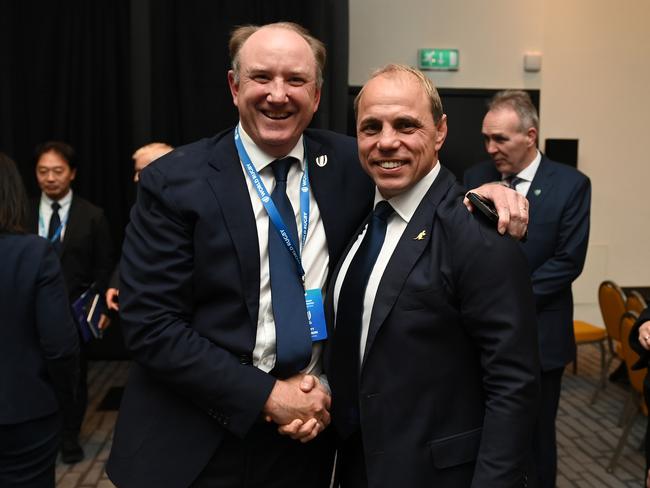
Some traditions in rugby can never be tinkered with.
Even in his moment of triumph, the first Australian appointed to the most powerful job in World Rugby, Brett Robinson could not resist the temptation of making a playful joke at England’s expense as he outlined his bold vision for the future of the global game.
Elected on a four-year term as the next chair of World Rugby after campaigning for reform and an end to the bitter rivalries that have stalled the game’s attempts to expand, the former Wallaby has vowed to reunite the game’s stakeholders for everyone who loves the sport.
The 54-year-old Queensland doctor knows he has his work cut out because rugby’s rivalries run deep, but he has already succeeded in breaking through one major barrier by securing England’s critical support to beat former French backrower Abdel Benazzi by the thinnest of margins, 27-25 in a secret ballot held in Dublin.
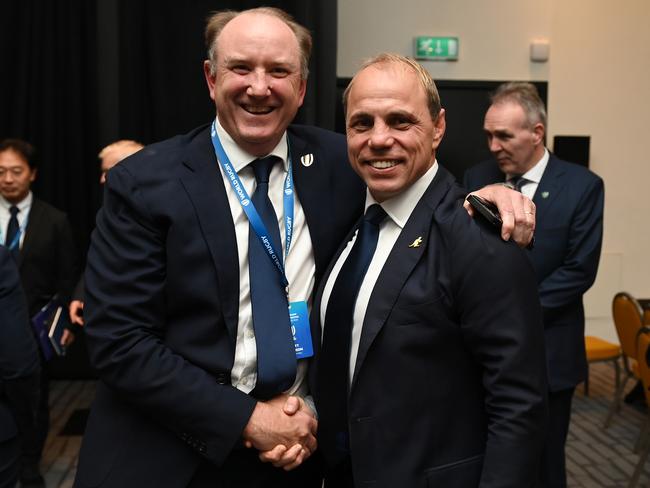
While grateful for England’s backing in the boardroom, Robinson still couldn’t stop himself from cheekily referencing the Poms’ gut-wrenching loss to the Wallabies at Twickenham last weekend, describing how the result had provided a massive boost to the struggling code in Australia after Joe Schmidt replaced Eddie Jones as coach.
“We have one of the most competitive football markets in the world and as I’ve said before, we’re the canary in the coal mine in terms of change and dealing with that,” Robinson said.
“One of the great outcomes of the Wallabies knocking off (England) last weekend was the great energy it’s given back to our sport because we have an incredible latency of support in Australia for the Wallabies and they want to believe.
“This team has been through a tough patch where their confidence has been certainly low, but Joe has been working so hard on rebuilding that confidence and culture…and to have had that moment is really powerful for what’s coming for the game.”
No offence was taken by Robinson’s rib-tickler with England’s Jonathan Webb, who was elected as the Australian’s vice-chair, nodding in agreement that rugby’s old foes need to put on their big boy pants if they are ever to fulfil the game’s enormous untapped potential.

For too long, rugby’s traditional powerhouses have put their own self interests ahead of the collective good, but that’s ever so slowly changing after agreement was reached last year to add more marquee events to the global rugby calendar, including the oft-talked about Rugby Nations Cup, due to kick off in 2026.
The most radical change to the international game since it turned professional in 1995, the creation of a new ‘world league’ between the best teams from the northern and southern hemisphere is forecast to bring hundreds of millions of extra dollars into the game and finally give real meaning to fixtures outside of the World Cup, Six Nations and Rugby Championship.
Addressing a global news conference after Robinson’s historic win at the ballot box, World Rugby CEO Alan Gilpin said the slow pace of change had been frustrating but things were now finally moving ahead.
“It’s meaningful and it’s going to happen,” Gilpin said. “It might feel glacial. It feels glacial to me sometimes, but it’s happening.”
Gilpin said one of the problems to implementing change was that there were so many different stakeholders involved but progress was also being made on a new global calendar for women’s rugby and sevens, which has exploded in popularity since being added to the Olympics program.
“Change in professional sport in a complex sport is challenging and slow,” he added.
“We look enviously at sports that are able to move quickly because they’re single country leagues, like the NFL or the NBA, or they’re sports that have got simpler governance structures.
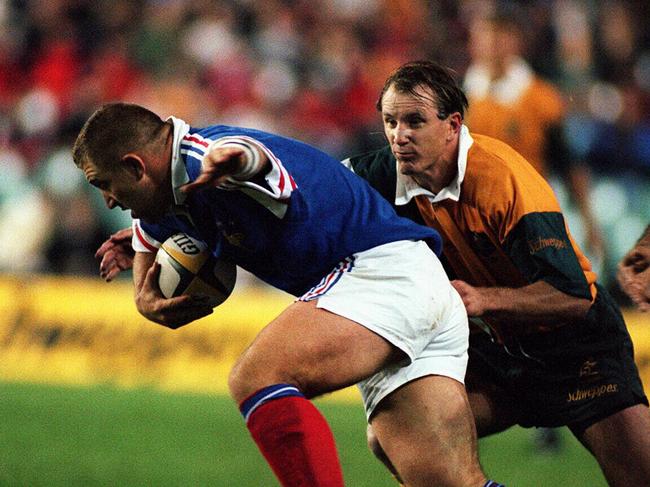
“But we’ve got a lot of competition owners and different interested parties in our sport that we’ve got to work with and that’s a reality so rather than sort of rue that as a challenge we’ve just got to get through that as an opportunity.”
The first person from the southern hemisphere to be elected chair after a seismic split in the old geographical voting blocks, Robinson hopes his appointment will help pave the way for a more harmonious approach to fast-tracking the major changes the game needs.
“We’ve got differences of opinion and we’ve got some challenges, there’ll be some people that are disappointed out of the election,” he said.
“It’s really important that in my role that I bring the game together and we agree on what shared success looks like and we pursue it together because, as a game, we know that the teams that are the most united are the most powerful and I guess in my role as chair is to facilitate that outcome
Although former Wallabies World Cup winning skipper John Eales missed out on a place on the executive board, Robinson’s election to the top job was still a rare and timely win for Rugby Australia, which has lost some of its clout in the international game because it simply doesn’t have the financial muscle of the major European nations and the Wallabies are not the force they once were.

“To have an Australian in this role is historic and speaks to our global standing in the game. World Rugby is truly in the best of hands,” Rugby Australia chair Daniel Herbert said.
The 52-member World Rugby Council also approved a package of four new law changes to the game that will be trialled in 2025 that are aimed at enhancing fan and player experience.
* 60-second limit on conversion attempts to be managed by a shot clock, where possible.
* 30-second setup for lineouts
* Play-on rule in uncontested lineouts when the throw is not straight.
* Scrum-half protection during scrums, rucks, and mauls
A proposal to trial to call a mark inside the 22-metre line at kick off and restarts and for single stop mauls was scrapped after it did not receive the required 75 per cent support
Television Match Officials were also given additional powers to identify clear and obvious infringements in the final attacking passage of play before scoring (knock-on, forward pass and in touch) and within the final two phases specifically (offside, maul obstruction and tackle complete).
The council delayed consideration of the 20-minute red card trial until the conclusion of the end of year internationals taking place in the northern hemisphere.
FORMER WALLABY WINS HISTORIC VOTE
Australia’s Brett Robinson has won a historic vote to be elected to the most powerful job in global rugby.
A former Wallabies Test flanker, Robinson became the first person outside of the sport’s traditional British and European powerbase to be elected to the pivotal role as chair of World Rugby.
The 54-year-old Queenslander beat Frenchman Abdel Benazzi and Italy’s Andrea Rinaldo for the position after the 52 members of the World Rugby Council conducted a secret ballot in the Irish capital Dublin that two rounds to decide the winner.
As expected, the vote was razor close, with the Aussie securing the required simple majority by the thinnest of margins, winning the second round 27-25 after Rinaldo was eliminated from the running after the first round.
“It is an immense privilege and honour to have been elected World Rugby Chair by my Council colleagues,” Robinson said.
“During the course of the process, I have had many conversations with my colleagues around the world and am heartened by our shared ambition to continue to build on the strength of our game.”

Elected to a four-year term, Robinson succeeded 72-year-old Bill Beaumont, after the former England captain completed a maximum eight years at the helm.
Jonathan Webb, who played fullback for England against the Wallabies in the 1991 World Cup final, was elected vice-chairman after John Eales missed out on election to the executive board.
A two-time World Cup winner for Australia, Eales ran for the two available southern hemisphere spots on the executive council, which went to South Africa’s Mark Alexander and New Zealand’s Bart Campbell.
Lost in the hype over the Wallabies spectacular win over England last weekend, Robinson’s ascent to the most important role in World Rugby is a major win for Australia, whose influence on the global game was starting to wane.
A doctor by profession, Robinson is the first Aussie to ascend to the role after campaigning on a platform for overdue reforms to modernise and grow the sport outside its traditional strongholds.
A sport rife with backroom politics, Robinson needed the support of the northern hemisphere to get over the line and got it after the old geographical alliances that normally vote in a block split.

Rugby Australia chief executive Phil Waugh hailed Robinson’s election as a gamechanger for the sport.
“This is an exciting time for rugby around the world and Brett is the perfect candidate to lead the game into a confident and prosperous new era,” Waugh said.
“Rugby Australia shares Brett’s vision for the future of rugby and endorses his proposed reforms that will evolve and grow the game worldwide.”
Rugby Australia chair Daniel Herbert said the timing of Robinson’s appointment could not have been better.
“To have an Australian in this role is historic and speaks to our global standing in the game. World Rugby is truly in the best of hands,” Herbert said.
“From 2025, Australia will be the epicentre of the rugby world with the British and Irish Lions tour, men’s and women’s World Cups in 2027 and 2029 respectively and a home Olympics.”

The World Rugby Council also approved a package of four new law changes to the game that will be trialled in 2025 that are aimed at enhancing fan and player experience.
These were:
* 60-second limit on conversion attempts to be managed by a shot clock, where possible.
* 30-second setup for lineouts
* Play-on rule in uncontested lineouts when the throw is not straight.
* Scrum-half protection during scrums, rucks, and mauls
A proposal to trial to call a mark inside the 22-metre line at kick off and restarts and for single stop mauls was scrapped after it did not receive the required 75 per cent support
Television Match Officials were also given additional powers to identify clear and obvious infringements in the final attacking passage of play before scoring (knock-on, forward pass and in touch) and within the final two phases specifically (offside, maul obstruction and tackle complete).
The council delayed consideration of the 20-minute red card trial until the conclusion of the end of year internationals taking place in the northern hemisphere.


